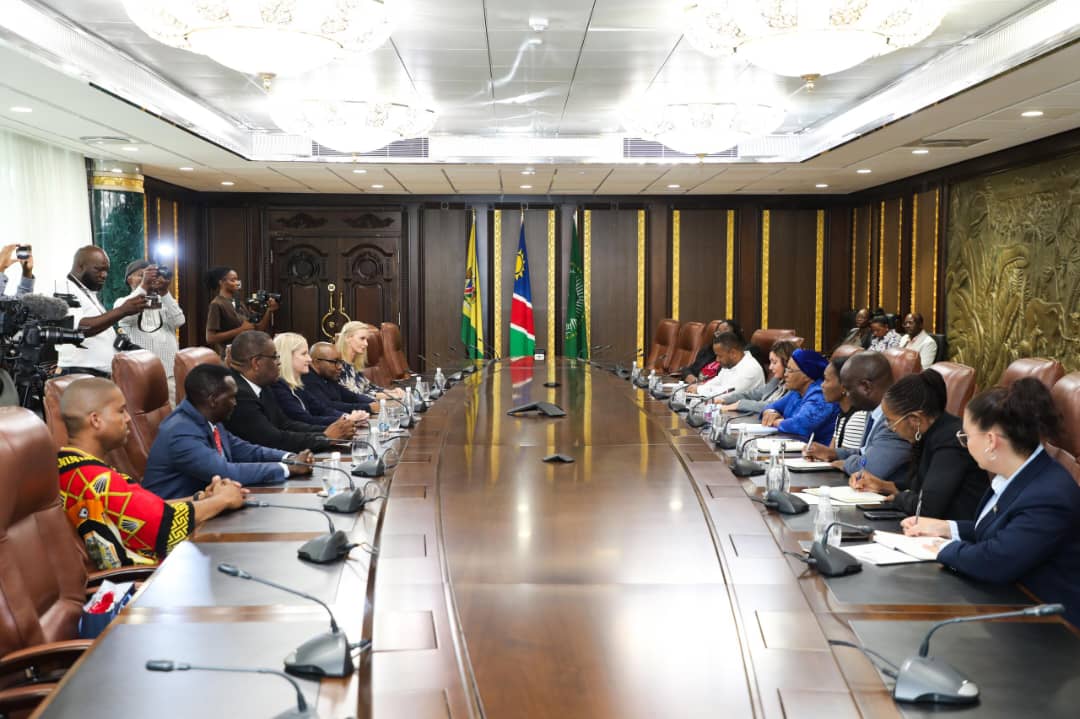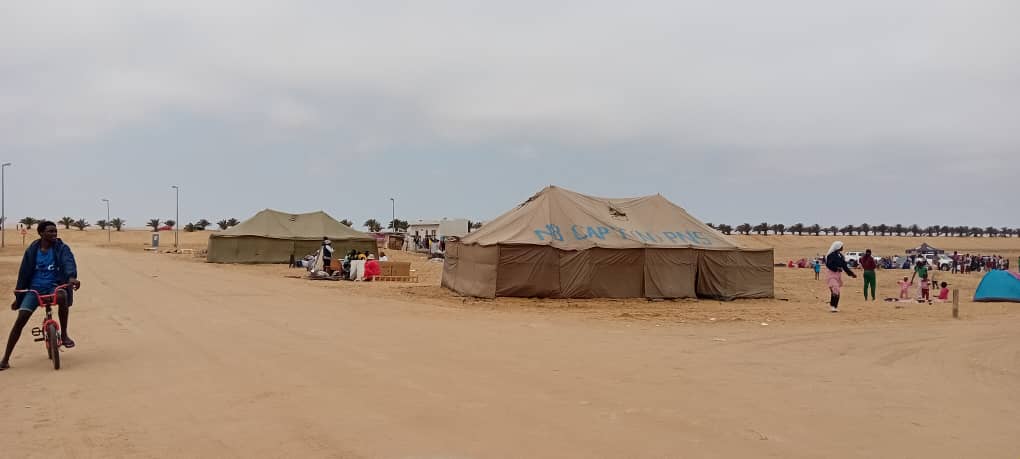THIS week the top structure of the Ministry of Works, Transport and Communication met with partners to discuss how to reduce the high death toll on Namibian roads.
This was a commendable initiative given the statistically proven fact that the mortality rate on our roads is unacceptably high, and urgent redress is needed to tackle this problem. However, the outcome of the meeting is disappointing.In a statement issued subsequent to this event, the Minister in question, Joel Kaapanda, showed just why Government cannot seem to get a grip on urgent priorities in this country.Instead of coming up with a 10-point plan on road safety, or something of an equally decisive nature, to be immediately put into force to stop this senseless loss of life, Kaapanda announced the setting up of “six task forces to come up with tangible and more practical interventions that could be implemented in the foreseeable future”.The six issues which he said needed urgent attention, were: * lack of co-operation and synergistic approach; * fragmented institutional setup; * incoherent regularly framework; * human and financial resources constraints; * ineffective adjudication system of traffic offences; and * disorderly public passenger transport systems.Presumably the six task forces will be constituted along these lines.These groups have been given until March 1 to present their findings, “based on which appropriate decisions will be taken as to the most suitable way forward”.Parallel to this, the statement said, “the Ministry, with the financial support from our development partners, Germany in this case, is working towards finding a long-lasting solution to road safety management in Namibia”.We would be curious indeed to know just what this is! The meeting, held behind closed doors for some inexplicable reason, was, according to Kaapanda “conducted in a spirit of patriotism and a sense of belonging”.We fail to see what patriotism or belonging, for that matter, has to do with tackling a problem of such urgency and magnitude.Among the groups that attended the meeting were representatives of the Municipal and Namibian Police; The Motor Vehicle Accident (MVA) Fund and the Namibia Bus and Taxi Association (Nabta).Perhaps it does make sense for Namibian taxis to have a uniform colour for easy identification, but this alone will not help solve the situation of reckless non-adherence to road safety rules by drivers of said vehicles, and so it is somewhat beside the point under the circumstances.This newspaper, and other stakeholders in road safety issues (for all Namibians are in fact stakeholders and not just key Ministries and transport-related organisations) have consistently over the years come up with ideas and possible solutions to some of the causes of death and destruction on our roads.This has been done after looking at campaigns to this effect in other parts of the world and learning from other examples.But it is apparently not good enough.The Minister himself had said that some of the issues under discussion included how to get unroadworthy cars off the roads, and how to deal with illegal taxis.Nothing short of intensive monitoring will achieve this goal i.e.a more proactive traffic force, assisted by the Police if they do not have enough personnel or resources or vehicles for that matter! We don’t need six committees to tell us this.We in Namibia have to again reinvent the wheel, create at least six task forces to be assigned with various investigations, and later to report back, and so it will continue for months to come until we are in the midst of another holiday season with the resultant carnage that often ensues! There must surely be quicker and more effective ways that we can get a serious campaign underway with almost immediate effect.However, the outcome of the meeting is disappointing.In a statement issued subsequent to this event, the Minister in question, Joel Kaapanda, showed just why Government cannot seem to get a grip on urgent priorities in this country.Instead of coming up with a 10-point plan on road safety, or something of an equally decisive nature, to be immediately put into force to stop this senseless loss of life, Kaapanda announced the setting up of “six task forces to come up with tangible and more practical interventions that could be implemented in the foreseeable future”.The six issues which he said needed urgent attention, were: * lack of co-operation and synergistic approach; * fragmented institutional setup; * incoherent regularly framework; * human and financial resources constraints; * ineffective adjudication system of traffic offences; and * disorderly public passenger transport systems.Presumably the six task forces will be constituted along these lines.These groups have been given until March 1 to present their findings, “based on which appropriate decisions will be taken as to the most suitable way forward”.Parallel to this, the statement said, “the Ministry, with the financial support from our development partners, Germany in this case, is working towards finding a long-lasting solution to road safety management in Namibia”.We would be curious indeed to know just what this is! The meeting, held behind closed doors for some inexplicable reason, was, according to Kaapanda “conducted in a spirit of patriotism and a sense of belonging”.We fail to see what patriotism or belonging, for that matter, has to do with tackling a problem of such urgency and magnitude.Among the groups that attended the meeting were representatives of the Municipal and Namibian Police; The Motor Vehicle Accident (MVA) Fund and the Namibia Bus and Taxi Association (Nabta).Perhaps it does make sense for Namibian taxis to have a uniform colour for easy identification, but this alone will not help solve the situation of reckless non-adherence to road safety rules by drivers of said vehicles, and so it is somewhat beside the point under the circumstances.This newspaper, and other stakeholders in road safety issues (for all Namibians are in fact stakeholders and not just key Ministries and transport-related organisations) have consistently over the years come up with ideas and possible solutions to some of the causes of death and destruction on our roads.This has been done after looking at campaigns to this effect in other parts of the world and learning from other examples.But it is apparently not good enough.The Minister himself had said that some of the issues under discussion included how to get unroadworthy cars off the roads, and how to deal with illegal taxis.Nothing short of intensive monitoring will achieve this goal i.e.a more proactive traffic force, assisted by the Police if they do not have enough personnel or resources or vehicles for that matter! We don’t need six committees to tell us this.We in Namibia have to again reinvent the wheel, create at least six task forces to be assigned with various investigations, and later to report back, and so it will continue for months to come until we are in the midst of another holiday season with the resultant carnage that often ensues! There must surely be quicker and more effective ways that we can get a serious campaign underway with almost immediate effect.
Stay informed with The Namibian – your source for credible journalism. Get in-depth reporting and opinions for
only N$85 a month. Invest in journalism, invest in democracy –
Subscribe Now!










